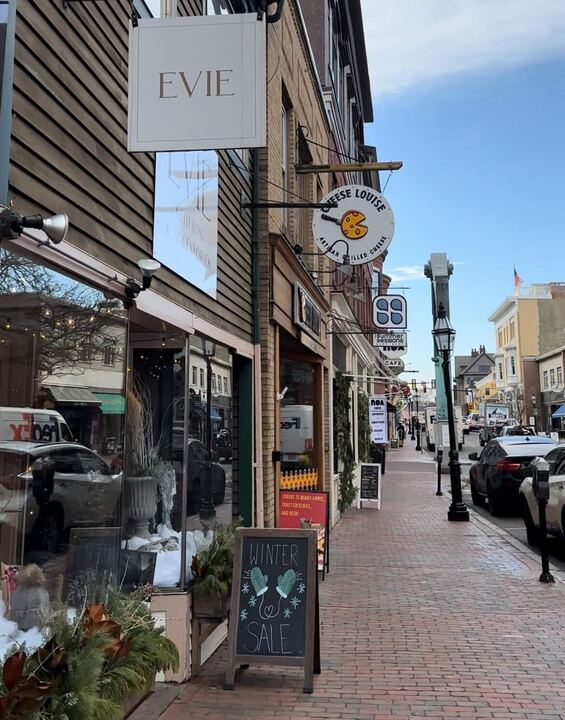The UNH College Democrats and Republicans participated in their first-ever debate on Wednesday from 8–9:30 p.m. During the debate, which was sponsored by The New York Times and moderated by Student Body President Jonathan Dean and political science and justice studies major Ricky Aiello, members of the two parties discussed issues of the 2016 presidential election. From healthcare to the elimination of ISIS, both sides discussed why their respective parties are best equipped to deal with the United States’ future.
There is less than a week until Election Day on Nov. 8. Democratic nominee Hillary Clinton currently leads Republican nominee Donald Trump by only two percentage points. A few weeks ago, Clinton had a substantial lead over the GOP nominee that has now diminished. With the race as tight as it is, both UNH College Democrats and Republicans debated each other, the future of their parties and the country in the Memorial Union Building’s (MUB) Strafford Room.

The debate started off with each member discussing why they support their party. For the Republicans, it had mostly to do with their respect for hard work and why they think the Republican Party best represents that value.
“Hard work is very important. A hand up is much better than a hand out,” College Republicans External Director Scott Myers said.
On the other hand, the College Democrats stressed the ideas of equality, respect and humanity. College Democrats Vice President Douglas Marino stressed the principles of social and economic justice.
“A measure of a successful country is helping its weakest members,” College Democrats President Elena Ryan said.

The first issue on the board was healthcare. The Democrats said that healthcare was not a privilege but a right, while the Republicans said that healthcare is not mentioned as so in the United States Constitution. Both sides acknowledged the problems of ObamaCare, but while the Republicans want healthcare to be a state’s issue like RomneyCare, the Democrats said that a single payer system like those in other developed countries such as in Western Europe are a better model, and that improving ObamaCare is a priority.
The next issue was gun control and both sides acknowledged the need for basic background checks. Where the differences began was on the degree to which the government should regulate guns. Marino mentioned legislation that focuses on universal background checks, proper storage, keeping weapons so they are not readily accessible and supporting the no-fly list ban.
Republicans rebutted these arguments by saying that liberals aren’t specific enough. While they agreed with universal background checks and keeping those on the no-fly list from buying firearms, they expressed doubt for the efficacy of gun control legislation by pointing out the fact that Chicago has some of the strictest gun control legislation, yet some of the highest crime rates.
Ryan’s response criticized the National Rifle Association’s (NRA) influence over the Republican Party.
The discussion moved to the Black Lives Matter movement and race issues in the country. Both sides acknowledged the validity of Black Lives Matter, but the Republicans disagreed that police officers are racist or that the police institutions are inherently racist. College Republicans Internal Director Nathan Marsolais said that better police training is needed and that where police are missing, crime rises. The Democrats repeatedly said that systematic racism is a core issue that needs to be addressed and that police forces should match their communities.

On the topic of immigration, both Democrats and Republicans stressed the importance and value of immigration, but both disagreed on how to go about dealing with the border, citizenship and deportation. The Republicans said they felt that there is a misperception about their party as being anti-immigration. They said that while immigration is important, building a border and removing those who overstay visas is crucial.
Climate change and student debt, two topics that received little attention in the debates between Clinton and Trump, came up in questions from the moderators and students. Wednesday night, there didn’t seem to be a unified opinion between the College Democrats and Republics on the whether the science behind climate change is true, but they did agree that finding clean energy solutions would be important for the country’s future.
The Democrats said that climate change is not only real, but also a serious problem. Ryan said that she thinks Clinton is not hard enough on climate change, but said that the Democratic platform is much better in addressing global warming issues. The Democrats and Republicans did agree on one specific policy in relation to climate change and that was giving tax breaks to companies that invest in green energy.
The debate continued with discussions on foreign policy and tax policy. Student debt came up as a core issue of the night as the Democrats embraced Clinton’s debt free college policy proposal, while the Republicans were wary of their opponents’ embrace of universal education or policies that they think would take away a student’s incentive to work hard if college were to be free.
Marino and Ryan as well as Marsolias and his fellow College Republicans member Elizabeth Girard spoke to TNH after the debate. They all agreed that the event was very productive, and that both groups share some things in common.
“I thought it was very important for students to see where we agree. Obviously we have significant areas of disagreement, but we do have areas of overlap where we can work together. So I think that was another thing that was valuable for people to see, that we didn’t necessarily see in the presidential debates,” Marino said.























